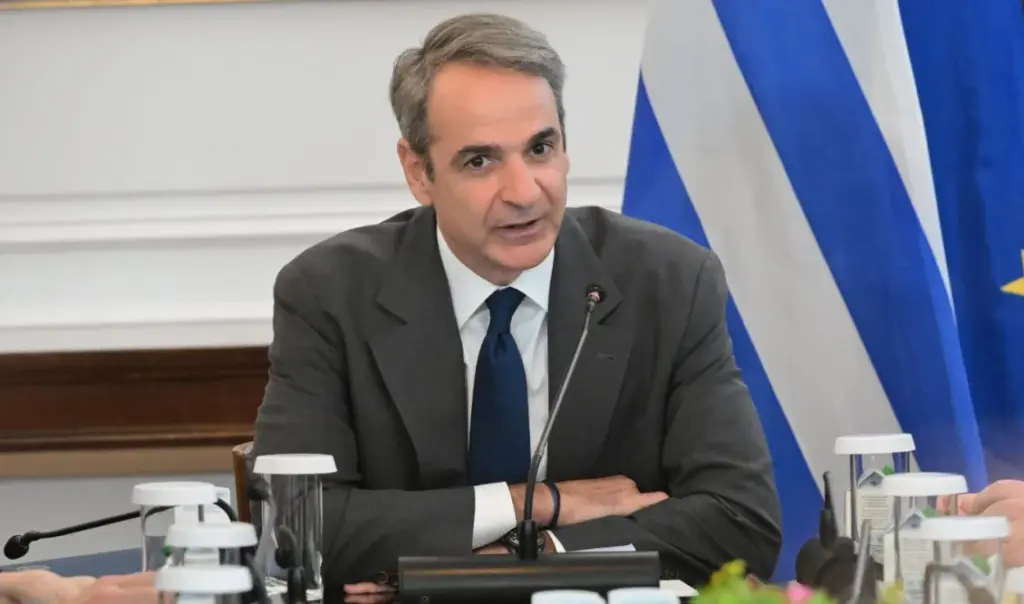Whenever a government enters the second half of its term, the first question many ask is: “When will the next elections be held?” For the New Democracy government, the second half of its new governmental term began ten days ago, and this question is already being raised in the public sphere.
Kyriakos Mitsotakis has publicly clarified many times that the ballot boxes will be set up at the end of the four-year term, in 2027. He has even specified the timing, at the end of spring of that year.
What the Constitution says about early elections
Let’s first look at the formal aspect: Based on the Constitution and electoral legislation, the prime minister must call elections for June 2027 or at the latest in early July of the same year. He can do so earlier only by invoking Article 41 of the Constitution “for renewal of the popular mandate to address a national issue of exceptional importance.” In the vast majority of cases throughout the post-dictatorship period, prime ministers have used this constitutional provision for early elections.
Greek EU presidency brings electoral puzzle
The formal aspect in this case has another dimension: On July 1, 2027, our country takes the baton from Lithuania and officially assumes the six-month rotating presidency of the European Union Council. A crucial presidency for economic, energy, defense, and geopolitical issues, while Greece may be called upon to handle even the final stage of the definitive design of the EU’s next multiannual financial framework for 2028-2035. The last time our country held the EU presidency was in the first half of 2014, when Mr. Mitsotakis was Minister of Administrative Reform and Digital Governance. He thus has personal experience of the seriousness and demands of this role for a prime minister and Cabinet.
Practically, this means that whatever government emerges from the ballot box must be sworn in, receive a confidence vote from Parliament, and have sufficient time ahead to make the necessary preparations and required consultations with Brussels, as well as with the outgoing Lithuanian presidency, to adequately meet these increased responsibilities. Essentially, a period sufficient to accomplish all this in an organized and methodical manner is at least two months – from the swearing-in before the President of the Republic until the start of the Greek presidency. An experienced minister we spoke with estimates that this period should normally be longer, since alongside preparing for the European “suit,” each minister also wears the Greek one and runs the agenda and reforms they have been tasked with implementing.
Why the majority threshold causes headaches for New Democracy
Here, however, another dimension enters the substantial aspect: that of opinion polls. With the enhanced proportional system, which the prime minister has committed not to change, the bar for New Democracy to form a majority government is 36%-37% (depending on the percentage of parties that will remain outside Parliament). All recent polls show New Democracy at least ten points behind this target in voting intention. If it fails to close this gap by the time the ballot boxes open, this means there will be no majority, while under current conditions a coalition government seems extremely difficult to form. This, in turn, means that in the days following the elections, a senior judge may again be called upon to serve as caretaker prime minister and lead the country back to the polls.
The scenario of double or triple elections and the role of caretaker government
The caretaker government does not appear in Parliament to receive a confidence vote. Due to the special mission assigned to it by the Constitution, it submits to the President of the Republic a decree for signature, which provides for the immediate dissolution of Parliament and the calling of elections to be held three to four weeks later.
Since it is very likely that two consecutive electoral contests will be needed to form a government that enjoys Parliament’s confidence (some analysts even speak of potentially three), Kyriakos Mitsotakis may need to seriously consider calling elections in early 2027. The “temptation,” however, to move this date slightly earlier, to late autumn, after the completion of the Recovery Fund in August 2026 and after whatever benefits are given at the Thessaloniki International Fair in September, is certainly great and this scenario should not be ruled out under any circumstances.
Published in Parapolitika




